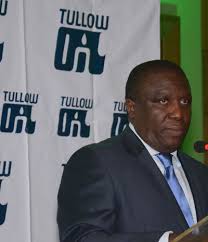As Parliament’s Committee on Commissions, Statutory Authorities and State Enterprises (Cosase) continue to probe top officials of Bank of Uganda (BoU) over the controversial liquidation of seven commercial banks, Dfcu bank which bought off the assets of two of the banks, is watching proceedings at parliament with anxiety.
Dfcu bank irregularly bought some of the assets of Global Trust Bank Uganda (GTBU) and Crane Bank Limited in July 2014 and July 2017 respectively, through the Purchase of assets and Assumption of liabilities agreement (P&A).
“I observed that there were no guidelines/regulations or policies in place to guide the Identification of the purchasers of GTBU. There were also no guidelines to determine the procedures to be adopted by the Central Bank in the sale of assets and transfer of assets or liabilities of the defunct banks to Dfcu,” the Auditor General John Muwanga says in a special audit report of Bank of Uganda on defunct banks.
Mr.Muwanga in his report about GTBU says he was not provided with records of the procurement process to ascertain the bid requirements, offers made, list of bidders, evaluation criteria, evaluation report and negotiation minutes leading to the P&A agreement. “In the absence of guidelines and procurement records, I could not ascertain whether BoU selected and evaluated the bids in line with the evaluation criteria,” he said.
The Auditor General pins BoU for selling assets and liabilities of the two banks to Dfcu bank without evaluating the due diligence report presented by PwC and DFCU Bank. BoU went by what the two entities presented as the best value of the assets. For instance after claiming to have injected Shs478.8 billion of taxpayers’ money into Crane Bank Limited (CBL) during its takeover, BoU would sell some of CBL’s assets at Shs200 billion, moreover paid in installments as agreed. At the time Mr. Muwanga released his report, Dfcu bank had paid Shs98 billion of the total sum.
“In a meeting with the outgoing EDS (Justine Bagyenda) on the progress of the special audit held on June 13, 2018 at BoU7r, the EDS explained that BoU did not carry out a valuation of the assets and liabilities of CBL but relied on the Inventory report and due diligence undertaken by Dfcu to arrive at the P&A,” Muwanga said.
On Crane Bank he further said: “However I was not provided with the negotiation minutes leading to the P&A agreement, In the absence of guidelines and negotiation minutes, I could not determine how BoU selected the best evaluated bidder and how the terms In the P&A were determined.”
Inside sources at Dfcu bank say not all shareholders were happy with the way the bank acquired especially assets of CBL. It lewd to divisions with some shareholders wanting to exit the shareholding for example the CDC Group.
Much as BoU says CBL was insolvent, Mr. Muwanga in his report, says there was an avenue in which the central bank would revive CBL, having spent Shs478.8 billion on it during the takeover. The MPs will have to ask BoU officials more reasons why it had to sell CBL.
Dfcu officials are scared because the ongoing probe has exposed BoU officials as being disorganized in doing business of selling off the banks. The documents don’t much, neither they were to make good reports on various transactions of the various banks. There are also counter accusations among the BoU staff on who did what.
The issue is worsened by the fact that the former executive director of BoU seems to be on the run and has failed to appear before parliament. She is suspected to have taken critical documents out of BoU on February 11, 2018, ac captured by the CCTV cameras. It will require MPs to demand that Dfcu bank avails some documents as regards especially CBL, since BoU seems to have lost some of them.





